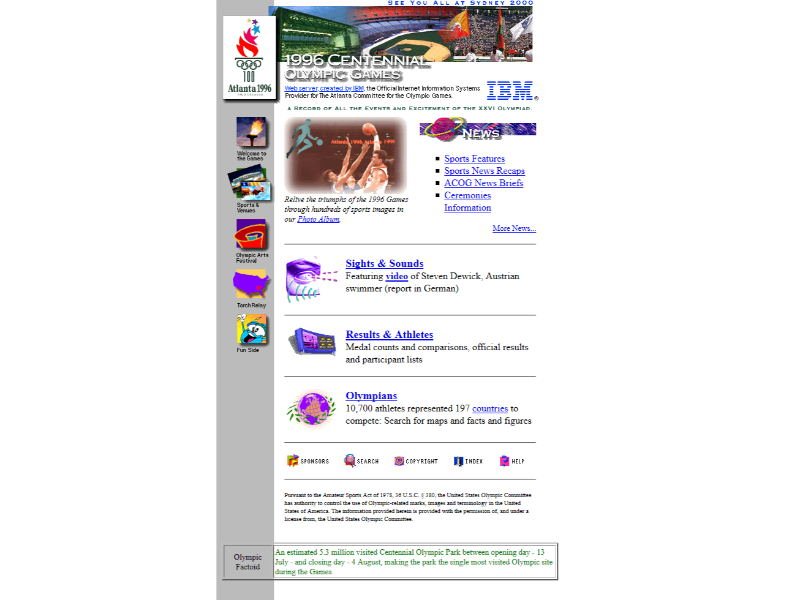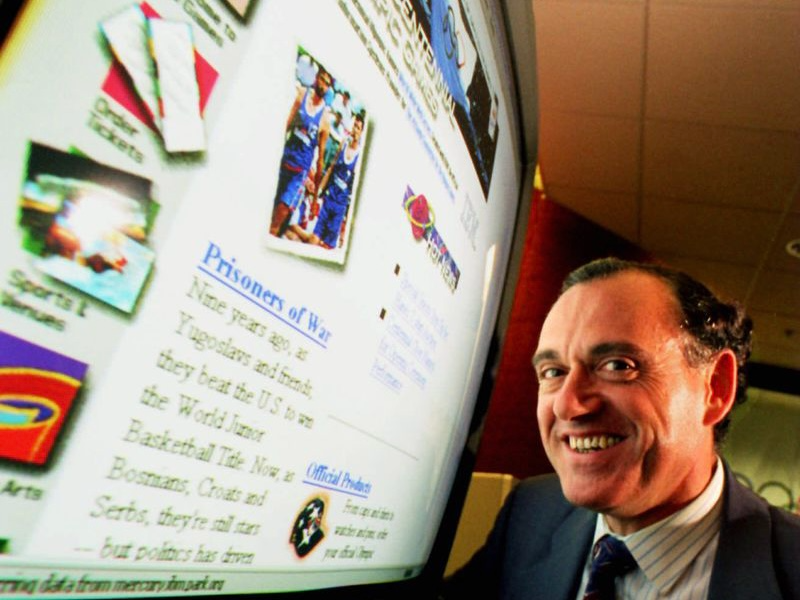- IBM’s 1996 Olympic website was the first to provide real-time updates, schedules, and athlete profiles for global audiences.
- The site marked a pivotal shift in digital sports coverage, setting new standards for online event engagement and accessibility.
- IBM’s innovation catalysed the widespread adoption of the internet, showcasing its potential as a global communication and information tool.
The 1996 Atlanta Olympic Games marked a pivotal moment in the convergence of sports and technology, with IBM taking centre stage. As the official IT partner, IBM developed and launched the inaugural Olympic Games website, fundamentally altering how global audiences could engage with the event.

The genesis of a digital paradigm shift
During a period when the internet was still in its formative years of public uptake, IBM undertook the ambitious task of creating a website that would serve millions of users globally. The site was designed to deliver real-time information on the games, including live updates, detailed schedules, athlete profiles, and results. This represented a significant inflection point, considering that online content delivery was still an emerging concept for most users at the time.
Also read: Technology and the Olympics: The leap from Tokyo to Paris
Also read: IBM report reveals surging data breach costs in the UK
Key features of the 1996 Olympic website
- Real-time updates: The website provided real-time updates on events as they unfolded. This included live scores, medal tallies, and updates on ongoing competitions, enabling users to follow the games with immediacy, irrespective of their geographical location.
- Athlete profiles: IBM’s site offered comprehensive dossiers on all participating athletes. Visitors could delve into detailed information about their favourite competitors, including their backgrounds, past achievements, and event schedules.
- Event schedules and results: The website featured an interactive schedule of events, allowing users to orchestrate their viewing experience and track results as soon as they were published. This feature was particularly advantageous for fans across different time zones.
- Multimedia content: Despite the internet’s nascent multimedia capabilities at the time, IBM’s website incorporated images and eventually small video clips from the games. This was a considerable leap forward in blending multimedia with online platforms.
- Global accessibility: The site was accessible to users worldwide, rendering the Olympics a truly global event. It supported multiple languages, accommodating the diverse international audience that follows the Olympics.
Also read: Google’s Olympics AI ad sparks debate over authenticity
Why is it important?
IBM’s development of the 1996 Olympic website set a new standard for the digital curation of major sporting events. It underscored the internet’s potential as a transformative tool for global communication and information dissemination. The site’s success also catalysed the broader adoption of the internet, as millions of people experienced the efficiency and immediacy of online information for the first time.
The 1996 Olympic website laid the groundwork for the comprehensive digital coverage that has since become ubiquitous in sports. From live streaming to detailed analytics and interactive features, this website was the precursor to a new era in how we interface with global events. Today, every major sporting event boasts a robust online presence, but it all traces back to IBM’s trailblazing efforts in 1996.

